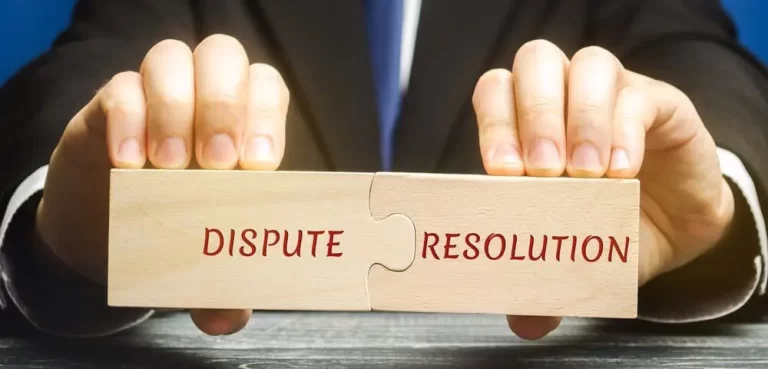The process of releasing goods in Iran is one of the important and complex stages that consists of a set of specific laws and regulations unique to this area. To release your goods from Iran’s customs, you must correctly follow all these steps. However, issues may arise for you as a trader along this path that could slow down the release process. One of the most significant problems that occur during the release of goods is the conflict between the owner of the goods and the customs authority.
To effectively deal with these issues and avoid problems, it is necessary to have the required information about how to address customs disputes. The resolution of customs disputes is handled by the relevant organizations.
What is meant by the resolution of customs disputes?
If a dispute arises between the owner of the goods and customs during the release process, the customs authority first allows the owner to present their issue for further consideration in the customs technical committee meeting. If the dispute continues, the owner must submit a written request for reconsideration and resolution of the customs dispute to the customs authority.
What are customs disputes?
In general, customs disputes are a collection of problems that arise after the declaration of goods and before the release of goods, causing financial losses to individuals and governments. If discrepancies regarding imported goods are observed after the goods arrive at customs, the importer must pay the difference in value, and penalties ranging from 10% to 100% may also be imposed on the owner of the goods. Any discrepancies at customs are considered violations, and finding any discrepancies in the declaration and accompanying documents by the owner or their legal representative incurs penalties. For example, not matching the required release documents with the stated goods is considered a customs discrepancy, which unfortunately is quite common.
Who are the members of the customs dispute resolution commission?
The customs dispute resolution commission is composed of various individuals, including:
• Two employees as main members from the Ministry of Industry, Mine, and Trade
• Four main members from customs employees
• Two main members from employees of the Ministry of Economic Affairs and Finance
• One main member representing the Chamber of Commerce, Industries, and Mines
• One main member representing the Cooperative Chamber
Duties of the members of the customs dispute resolution commission
When a dispute arises between the owner of the goods and customs, it is first pursued in the customs headquarters units. If the owner continues their objection, the case is referred to the customs dispute resolution commission. To present a dispute in the customs dispute resolution commission, the owner must pay half a percent of the disputed amount as a processing fee to customs. If the owner disagrees with the ruling issued by the customs dispute resolution commission, they can file their objection within 20 days from the date of notification, and the case will ultimately be referred to the appellate commission.
How is the resolution of customs disputes conducted?
The owner of the goods can entrust the case to customs experts who have relevant education and are specialists in this field to obtain their rights. Additionally, a lawyer can be used to participate in the commission meetings, where they can present the case in the relevant customs commissions and demonstrate documents and evidence according to customs laws and acceptable identification of the goods to obtain the desired ruling for the owner from the mentioned commission. One type of customs dispute arises from a shortage or excess in the value of the imported goods.
Who makes up the appellate commission?
The appellate commission for customs disputes is formed when the ruling issued by the customs dispute commission is not accepted by one of the parties involved. This commission consists of:
• An employee from the Ministry of Economic Affairs and Finance, chosen by the minister
• A representative from the customs deputies, chosen by the head of customs
• An employee from the Ministry of Industry, Mine, and Trade, chosen by the minister
• A judge, chosen by the head of the judiciary
• A member of the board of directors of the Iranian Chamber of Commerce
Conditions for addressing customs disputes in the appellate commission
After the case is formed, it will be notified to the individual, who must present their defense in writing and attend the specified date in the customs dispute resolution meeting. Following this stage, the customs dispute resolution commission will issue its final ruling, which, according to customs laws and regulations, must be based on the law and issued after thorough examination in cases requiring specialized expertise. Once the ruling is issued by the customs dispute resolution commission, if the ruling is not final, an objection can be filed with the appellate commission.
The ruling issued by the appellate commission is final and enforceable, and according to the Administrative Justice Court law, it can be challenged and filed within the legal time limits set by law. Proceedings in the Administrative Justice Court are formal and without considering the substantial aspect of the case; that is, the court only examines whether the ruling issued by the customs commission is in accordance with the law and customs regulations. If it determines that the ruling has an error or issue, it will annul the issued ruling and refer the case for further examination and compliance with the points mentioned in the court’s ruling to the equivalent customs dispute resolution commission. If it considers the issued ruling correct, it will issue a judgment rejecting the complaint and affirming that ruling.


